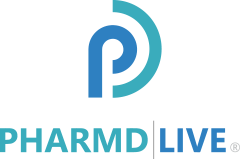Physicians who treat a high-volume of Medicare patients will see changes January 1, as changes to Quality Payment Program (QPP) reimbursement models—MIPS (Merit-Based Incentive Payment System) and APMS (Alternative Payment Models)—take effect as part of the nation’s transition to value-based care. Value-based care ties reimbursements to outcomes, replacing the outdated fee-for-service model which garnered criticism for catalyzing wasteful healthcare spending. Value-based care is expected to control spiraling costs, improve clinical outcomes, empower patients and reimburse physicians for quality care. But physicians have been vocal about their struggle to incorporate added demands into their workflow—gathering data, reporting metrics and providing additional between-visit care will be shoehorned into already demanding schedules.
In an April, 2018 letter from the American Medical Association (AMA) to Centers for Medicare and Medicaid Services (CMS) top administrator Seema Verma, a “reduced reporting period for future MIPS program years in order to reduce administrative burden” was requested, further illustrating the stress felt by practices bracing for a sea change.
Capitol Hill staffers cited physician workload and administrative burden as the primary catalysts for physician meeting requests with their congressman in an October 11, 2018 meeting with PharmD Live’s executive team. They further described the uptick in administrative burden due to increased QPP reporting requirements as the root cause.
Dr. Paul Williams, PharmD Live’s Chief Medical Officer, stated, “Many QPP measures focus on between-visit care, which can add significantly to the physician’s workload. Many practices have chosen to partner with third-party vendors, such as PharmD Live, which have the potential to reduce physician burden and boost quality metrics while increasing direct and indirect practice revenue.”
But how does a partnership with PharmD Live alleviate the administrative burden and reduce physician workload?
PharmD Live’s chronic care management services are designed to ease the transition to value-based care. As you know, Medicare reimburses for chronic care management and complex chronic care management delivered via telehealth between office visits. PharmD Live’s board-certified pharmacists deliver between-visit care and are medication experts capable of making high-level clinical decisions. Pharmacists are available around-the-clock to deliver care, answer questions and tend to patient needs.
Because the PharmD Live technology solution is integrated with the physician’s electronic health record (EHR), patient information is updated in real time. PharmD Live provides billing reports and metrics data to streamline Medicare billing and communications.
To learn how a partnership with PharmD Live can ease your transition to value-based care, schedule a demo.








